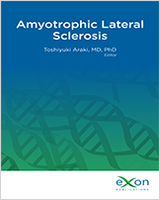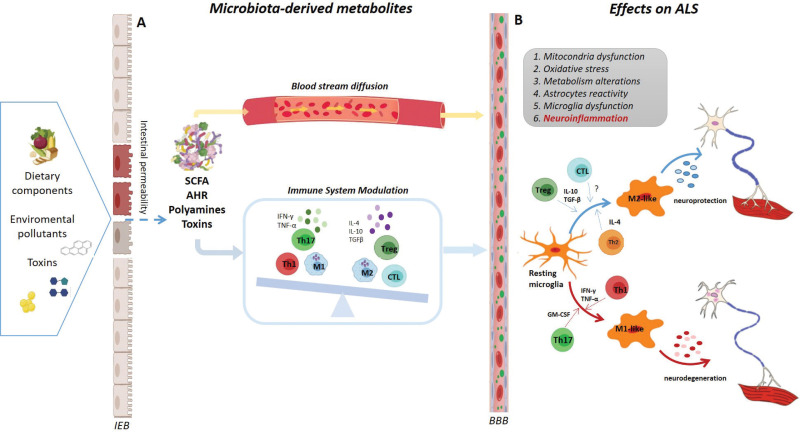Microbiota-derived metabolites modulation of ALS. A. Toxins and neuroactive metabolites generated by damaged IEB or enteric bacteria can overcome BBB, diffuse to the systemic circulation and impact on ALS pathogenesis; alternatively, microbial metabolic end products may indirectly affect the central nervous system through immune system modulation. B. Bacteria-derived metabolites can modify energy homeostasis, promote oxidative stress, and induce mitochondrial dysfunction and neuroinflammation. In particular, peripheral immune T lymphocytes regulate microglia’s fate and consequently neuron degeneration or survival. Th1, Th17, and GM-CSF producing CD4+ T lymphocytes favor the microglia M1-like neurotoxic phenotype; Th2, Treg, and certain CD8+ T cell types may contribute to the promotion of the neurosupportive M2-like phenotype. AHR, aryl hydrocarbon receptor; BBB, blood brain barrier; IEB, intestinal epithelial barrier; SCFA, short chain fatty acids.

